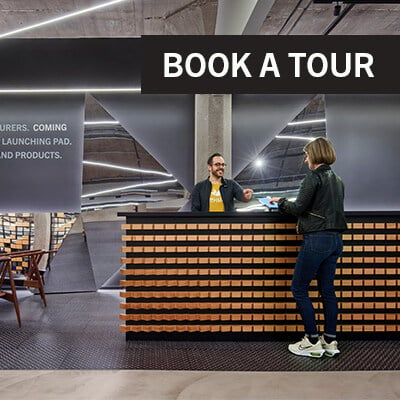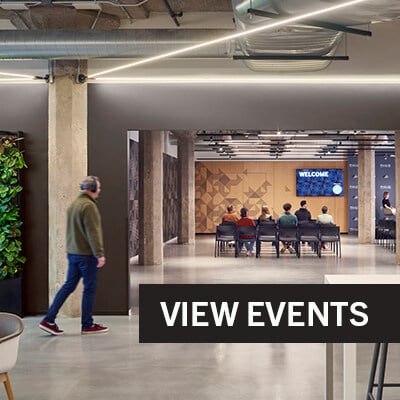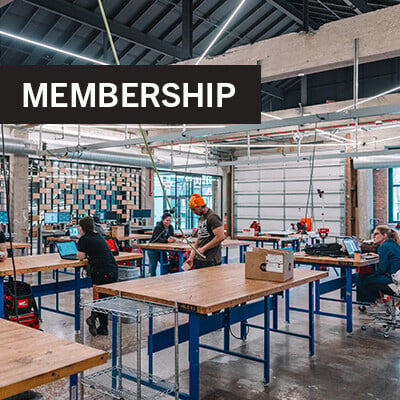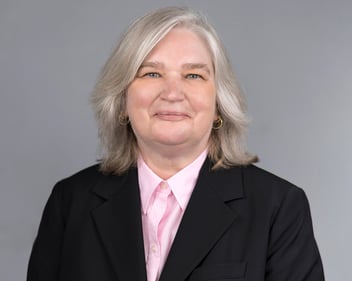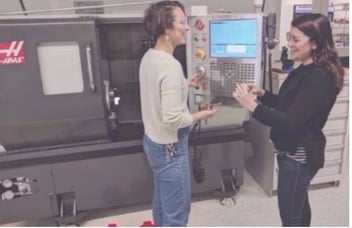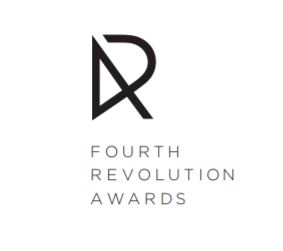As Laystrom Manufacturing celebrates its 70th birthday this year, we sat down with Laystrom's President Colin Cosgrove to discuss the past, present, and future of this third generation metal fabrication company. Laystrom Manufacturing was also the winner of the Small and Mid-Sized Manufacturer of the Year at the 2020 Fourth Revolution Awards. You can find an event recap here.
Tell me a bit about the history of your company.
Laystrom Manufacturing is currently celebrating its 70th year. It's a third-generation business within the Laystrom family. The grandparents and family of Bob Laystrom, Chairman of the Board, founded Laystrom Manufacturing back in 1951 in the Chicago area. We were a tool and die, and stamping company back then. In the eighties, we started transitioning to more fabrication and started building up that side of the business. Now we’re a hundred percent fabrication. The work we do is a diverse mix for the medical industry, telecommunications, agriculture, construction, music, packaging, and utilities. It’s really important to us to have that diversity.
As a metal fabrication company, we do typical processes like laser cutting, press brake forming, and precision welding, for example. There has been a lot of growth, especially in the last 12 months.
Talk a little about the growth your company has experienced.
In the last four years or so, we've grown by about 70% in terms of revenue and sales. We've grown by 55 to 60% in terms of personnel. So that's something that we want to continue doing. That’s an aggressive growth rate in our small world, it’s been challenging but it's also allowed us to make some changes.
We’ve invested a lot in the organization. Like bringing in a almost two million new capital equipment: automated lights, fiber laser and press brakes and collaborative robots- these are all advanced manufacturing technologies. But we've also spent a lot of time investing in our people. The culture of the organization has been the thing I would say that underpins our growth: the responsiveness and the flexibility and the dedication of all the employees that are here.
How has being in the Midwest/Illinois helped shape your business?
Well, it's sort of fundamental since we've been here for 70 years. We're at this intersection in the country where the steel industry is, and where transportation is coming through. So that gives access to raw material and ease of logistics. And since we're in the city of Chicago, there is access, to some extent, to people. However, there has been an exodus of manufacturing companies out of the Chicago area into the suburbs in the last 30 years. I think a reasonable argument could be made that in the last number of years the city has had mixed results in terms of support in manufacturing. There's been some regulations and ordinances that have been super challenging.
What kind of growth do you expect to see business-wise in the next few years?
I go back to that statement that I made about our culture earlier. We try to approach what we're doing with this fundamental belief that if we believe that the core values we talked about of safety, character, connection, contribution, and cultivation provide a good workplace for the 70 odd people that are here, shouldn't we want to have more people in our community? We have seven different family groups from the Laystrom’s to a variety of others. Seven different family groups that are involved in the organization. I think of us as a community, and if we're really contributing to a better world- on a not too grandiose scale- shouldn't we want more people involved in that? On a fundamental level.
So, we'd like to continue growing. Even if we can’t keep at the 70 odd percent growth over the past four years, we’ve got to find new opportunities. It's a very competitive environment that we're in. Something like minimum wage, for example, that there's talk of being $15 an hour or even $11 or $12 or $13 across the country. It's interesting. I'm not a good enough economist to know whether that's good or bad for the country. But when markets, such as Chicago, are pushing ahead of that curve four or five years, we get less competitive because the cost of labor goes up. So if everyone else catches up that should make us more competitive with other manufacturing centers, whether it's Indiana or Kentucky or Tennessee.
There are good ideas around having another five million jobs in manufacturing from the Biden administration. I'm inclined to believe the National Association for Manufacturing who talks about having a shortfall of 2.6 million new jobs in manufacturing by 2028, which should suggests that there's a demand for and investment interest in manufacturing. And that would give me optimism around growth opportunities. But without the crystal ball, our first challenge is showing up to do the best work every day by everyone in the entire organization. And if we do that, then we simply put ourselves in the best position for success.
Anything else you'd like to share with the mHUB community?
I'm going to encourage anybody who's in the manufacturing space to continue advocating for manufacturing. Manufacturing needs more people involved, more people that are curious and want to increase diversity. Let’s talk about all sorts of different people from different backgrounds that can come into manufacturing and have a stable career with opportunities and technical training. Manufacturing provides tremendous benefit to the rest of the economy. Let's keep shouting from the rooftops about what this country builds, the breadth of things that this country builds, the innovation, the advanced technologies, all of those are super important to keep talking about and pushing in front of whomever will listen.
